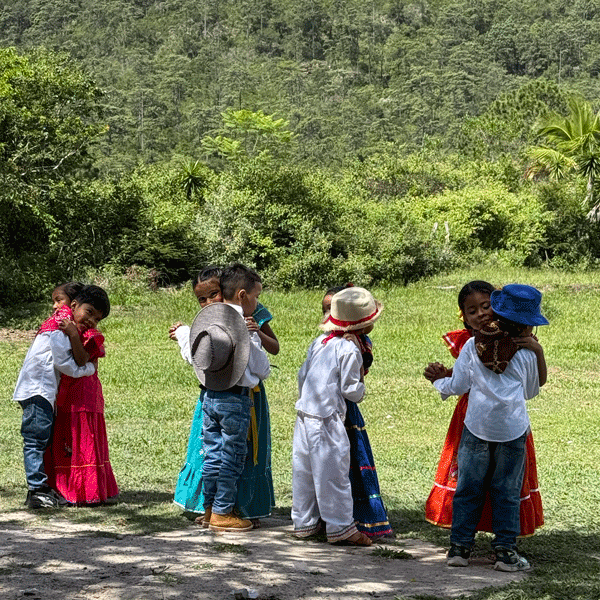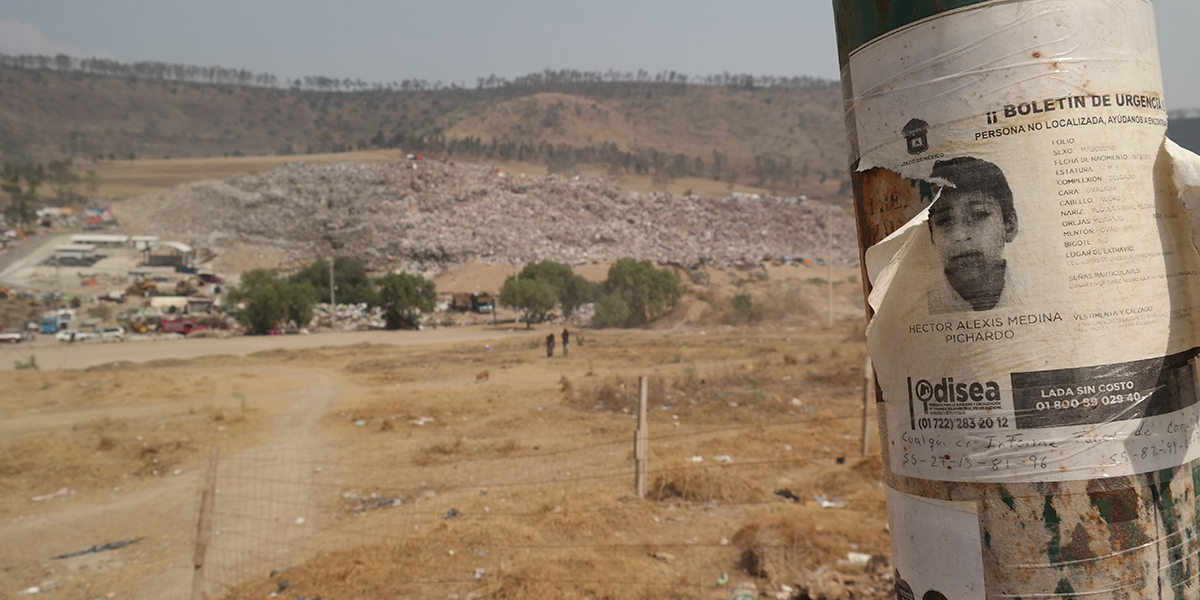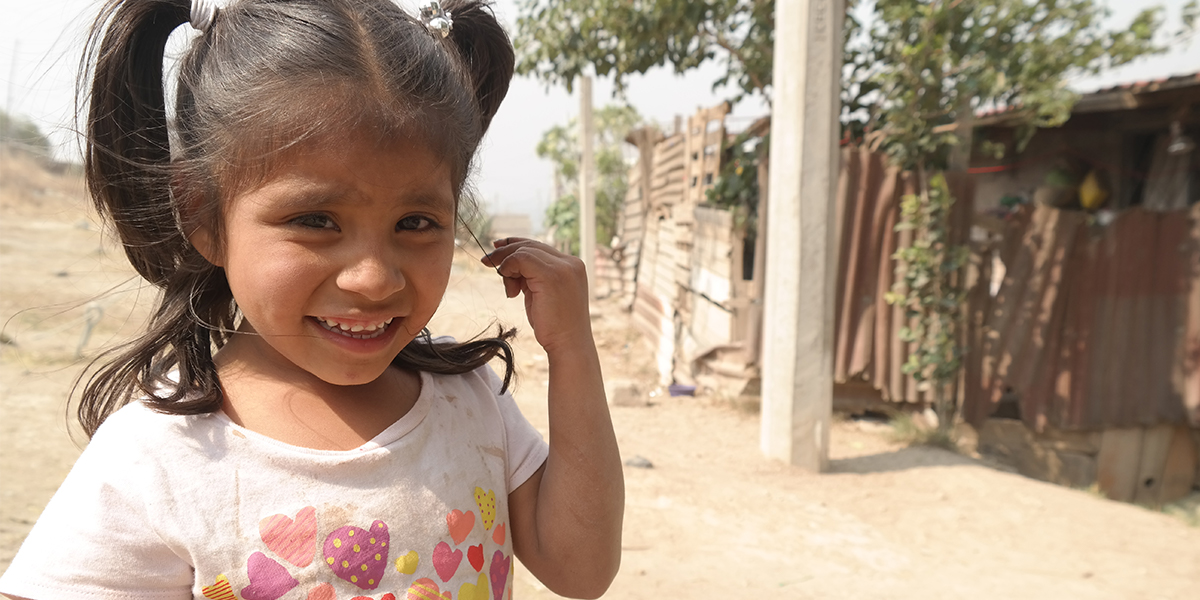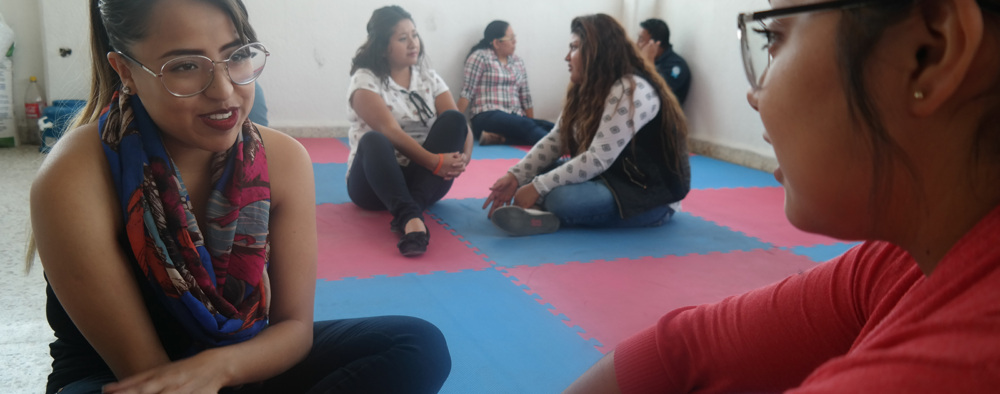
Éducation
Éducation, pouvoir des jeunes
Note de l'éditeur : cet article est également disponible en espagnol.
L'utopie est à l'horizon.
Je me rapproche de deux pas ; il s'éloigne de deux pas.
Je fais encore dix pas et l'horizon s'éloigne dix pas plus loin.
J'ai beau marcher, je n'y parviendrai jamais. Alors, à quoi sert l'utopie ?
L’essentiel est le suivant : continuer à marcher.
– Eduardo Galeano
UTOPIE APIC a été légalement créée il y a sept ans, mais notre histoire commence bien des années avant. C'est l'histoire d'une vie.
En 2000, un groupe d’amis et moi-même sommes allés au Chiapas, au Mexique. Nous voulions visiter les communautés indigènes zapatistes. Nous sentir inspirés par leurs histoires de courage, d’organisation communautaire et d’espoir.
Nous avons appris tellement de choses…
Nous avons appris que si l’on est prêt à écouter, de nombreuses voix apparaissent, grandes et petites, qui apportent des idées et des rêves pour changer le monde.
Nous avons aussi appris que les voix des filles et des garçons sont des échos d’espoir qui donnent de la force et nous montrent la voie quand on se sent perdu. Il faut juste être prêt à être surpris.
Nous avons appris que si l’on travaille collectivement, on ne cesse jamais d’apprendre.
Les filles et les garçons autochtones nous ont dit : « Vous savez que vous serez toujours les bienvenus ici, mais si vous voulez construire un monde meilleur, vous devez commencer dans votre communauté, chez vous, avec vous-même. Allez partager ce que vous avez appris. Votre peuple a besoin de vous. »
Et c'est ce que nous avons fait.
Nous sommes rentrés chez nous, dans l’État de Mexico, l’une des régions les plus violentes du pays, où plus de 3 millions de filles et de garçons sont condamnés à la pauvreté. Ils luttent pour survivre.
Pour ces enfants et ces jeunes, il est interdit de rêver. La pauvreté et la marginalisation sont un cycle, un héritage, une malédiction. Il n’y a pas de paix, car il n’y a pas de justice.
[image_caption caption=”Entrée de Chimalhuacán, Mexique. © GFC” float=””]

[/image_caption]
Nous avons commencé à poser des questions, à observer, à écouter. Ils nous ont parlé de Chimalhuacán. Des garçons et des filles qui vivent parmi les montagnes de déchets. Ils travaillent dans des décharges depuis l’âge de 5 ans. Ils gagnent moins de quatre dollars par jour pour subvenir aux besoins de leur famille. « C’est ici que je suis née et c’est ici que je vais mourir », nous a dit une petite fille.
Nous avons écouté leurs histoires. Ils ont compris qu’ils avaient le droit d’avoir une histoire. Qu’ils étaient capables d’écrire une histoire différente. Faite de rêves. D’utopies.
Beaucoup de gens se moquaient de nous. Ils disaient : « Vous perdez votre temps. » « Ils ne pourront rien faire. » « Les gens n’écoutent pas. » « Ils sont dangereux. » « Ils sont méfiants. » Nous avons continué à marcher. Nous n’avons pas laissé la peur nous paralyser.
En 2013, nous sommes devenus une organisation à but non lucratif et avons décidé de lancer un projet à long terme : nous voulions construire des communautés de paix, avec les enfants comme chefs de file. Nous avons proposé des formations pédagogiques et des cours d'arts martiaux pour promouvoir les valeurs, encourager le travail d'équipe et renforcer l'estime de soi.
Le sport inspire et motive, favorise la santé mentale et physique, permet l’inclusion sociale et rapproche les individus et les communautés. Il vous donne un sentiment de puissance. Il vous permet de rêver et de construire la paix. Et c’est exactement ce que nous voulions.
Nous avons rencontré les parents. Ils étaient incrédules, nerveux. « Nous avons déjà entendu cette histoire », nous ont-ils dit.
Ceux qui nous ont toujours écoutés, ceux qui ont toujours cru en nous, depuis le début, ce sont les filles et les garçons.
Nous avons fixé une date, une heure et un lieu pour notre première rencontre. Nous n’avions pas de bureau ni de local physique, alors nous leur avons dit que nous nous retrouverions sous un immense arbre à l’entrée de la décharge.
Catastrophe ! Nous ne connaissions pas encore bien les lieux et nous nous sommes perdus. Nous sommes arrivés avec une heure de retard. Nous étions bouleversés, frustrés, au bord des larmes.
Quelque chose de magique s'est produit. Je ne l'oublierai jamais.
Nous sommes arrivés et ils étaient là. Ils nous attendaient. Pas les adultes, juste les enfants. Avec des visages souriants. Impatients. Voulant y croire. Pleins de rêves et d’espoirs. Dès qu’ils nous ont vus, ils ont commencé à crier : « Ils sont là !
[image_caption caption=”Pendant un cours de sport, une jeune fille sourit à la caméra. © GFC” float=””]

[/image_caption]
Je me souviens de ce jour, il y a sept ans, comme si c'était hier. J'ai encore la gorge nouée. À ce moment-là, nous savions que nous étions à la maison. Que tout cela en valait la peine. Que le rêve allait devenir réalité.
Beaucoup de ces filles et garçons qui ont participé à cette première journée sont aujourd’hui des promoteurs communautaires, inspirant d’autres jeunes, apportant leur force et leurs connaissances pour améliorer la situation de leur famille et de leur communauté. Plusieurs d’entre eux ont obtenu des bourses et ont réussi à terminer leurs études universitaires. Ils construisent leur propre histoire sans oublier d’où ils viennent. Et ils sont désormais des agents du changement.
Aujourd’hui, nous avons deux centres communautaires de formation à la paix. De plus, nous avons reçu plusieurs prix internationaux. Malgré cela, chaque semaine, nous continuons à nous retrouver près de cet arbre, avec la même force et le même désir. Les enfants nous attendent toujours.
Nous n’avons pas marché seuls. Le Fonds mondial pour les enfants a cru en nous alors que nous n’étions qu’un rêve. Grâce à un financement flexible et au renforcement des capacités, ils nous ont permis de faire de notre utopie une réalité quotidienne. Nous avons grandi ensemble et ils font désormais partie de la famille APIC UTOPÍA.
Sept années de marche vers l’utopie, de nombreuses frustrations, de sentiment de solitude face au monde, de sentiment de ne pas arriver à rien. Mais aussi sept années de force, d’expériences enrichissantes, de rencontres sur le chemin avec des personnes et des organisations qui nous remplissent d’encouragement, de découverte dans les regards et les sourires des enfants de quelque chose qui ne s’achète ni ne se vend : l’espoir.
Et nous voici de retour. Éternels apprentis, éternels rêveurs. Avec de nombreux pas devant nous.
Ce n'est que le début.
Nous sommes UTOPÍA.
L'Alliance pour l'intégration communautaire UTOPÍA AC (APIC UTOPÍA) promeut une enfance saine pour les enfants et les jeunes de Mexico et de ses environs à travers des activités académiques et parascolaires qui améliorent la réussite scolaire, le bien-être et les chances de réussite des participants.
GFC soutient les ateliers hebdomadaires d'alphabétisation et de mathématiques d'APIC UTOPÍA pour les enfants et les jeunes issus de milieux défavorisés et de communautés de ramasseurs d'ordures, ainsi que des activités sportives complémentaires et des ateliers de développement personnel sur des sujets tels que la violence, l'estime de soi, les relations parents-enfants et l'amélioration personnelle.
